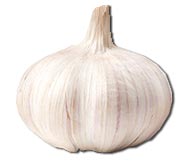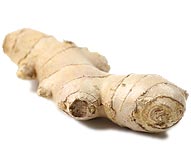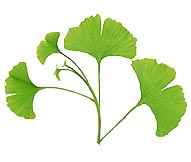
In a previous post, we discussed the power of food to keep you young inside and out. It turns out that the some of the most potent of all age-defying foods are all in the G family: garlic, ginger, ginseng, and gingko.
 Garlic (Allium Sativum) is arguably at the top of the list when it comes to benefits for anti-aging (as well as so many benefits.) It is unquestionably my favorite food to cook with, and I try to get it into everything I can. Garlic is well studied as an anti-viral and anti-biotic, having been used by traditional cultires for 100s of years to fight infections and boost immune systems.
Garlic (Allium Sativum) is arguably at the top of the list when it comes to benefits for anti-aging (as well as so many benefits.) It is unquestionably my favorite food to cook with, and I try to get it into everything I can. Garlic is well studied as an anti-viral and anti-biotic, having been used by traditional cultires for 100s of years to fight infections and boost immune systems.
Research shows a whole host of benefits, especially as an anti-oxidant, and recently it was discovered that high levels of the antioxidant hydrogen sulfide, which relaxes the arteries and increases blood flow, may be a major reason for this. Consuming garlic was found to keep cholesterol deposits from accumulating in walls of blood vessels and participants in a study taking 300mg per day of garlic powder were found to have more elastic arteries and lower blood pressure. It has been noted that garlic is similar to statins in these effects. Studies have linked garlic to cancer defense, to reduced rates of breast, prostate, and pancreatic cancers (source: National Cancer Institute, Memorial Sloan-Kettering Cancer Center.)
But its anti-inflammatory and pro-immune functions are most useful for protecting against aging. Garlic improves cell function, protects against oxidative stress, and boosts repair function. And best of all, it improves skin cell health and repair, helping to reduce wrinkles, so it can help you look younger on the outside.
 Ginseng(Panax Ginseng) is revered by the Chinese and Koreans as a 'fountain of youth' plant. It is extremely commonly used by the elderly, for whom it is considered a tonic for everything from skin tone to physical energy. In fact, it is so highly considered that you might hear it said that it should not be given to the young, but rather saved for the elders who need it to feel young. Interestingly, the world's oldest recorded man, Li Ching-Yun, a Chinese herbalist, martial artist and university professor who lived to be 256 years old (1677-1933), claimed ginseng was one of his secrets to longevity.
Ginseng(Panax Ginseng) is revered by the Chinese and Koreans as a 'fountain of youth' plant. It is extremely commonly used by the elderly, for whom it is considered a tonic for everything from skin tone to physical energy. In fact, it is so highly considered that you might hear it said that it should not be given to the young, but rather saved for the elders who need it to feel young. Interestingly, the world's oldest recorded man, Li Ching-Yun, a Chinese herbalist, martial artist and university professor who lived to be 256 years old (1677-1933), claimed ginseng was one of his secrets to longevity.
Ginseng, like garlic, is full of ginsenosides, phytonutrients, is a powerful anti-oxidant that fights off free radicals, and is considered very effective at boosting healing and improving skin tone. A 2009 study found that red ginseng extract had a protective effect against skin aging (from sun exposure,) possibly due to its ability to increase collagen synthethis.
Research on this plant continues, and there is still variation in the effectiveness during testing, but 1000s of years of traditional medicinal use as well as anecdotal evidence suggests the value of gingko for anti-aging. What we do know from studies is that ginseng is similar to garlic in many effects. It stimulates the immune system, helps reduce unhealthy cholesterol levels in the blood, has anti-clotting effects, helps reduce blood sugar levels, helps prevent cumulative cell damage, protects the liver from the effects of toxins, minimizes cell damage from radiation, and increases intestinal absorption of nutrients.
Much age related damage is neuro-degenerative, and so anything that prevents the degeneration of cells, particularly in the brain, which greatly benefit anti-aging. A study in 2011 showed the potential for ginseng to be neuro-protective. Adult mice given ginsenosides showed marked increase in the number of dividing cells in hippocampus, leading researchers to conclude that ginsenoside Rg1 is involved in the regulation of hippocampal progenitor cells. Ginseng may serve as one of the elementary mechanisms for cellular anti-aging action.
 Ginger (Zingiber officinale) is another nutrient-rich food source that has strong indicators for anti-aging benefits, especially as an anti-inflammatory and anti-oxidant, making it excellent for people with arthritis and other inflammatory conditions. Although it has plenty of traditional use, science has now backed it up. A 2004 publication, "Antioxidant properties of gingerol related compounds from ginger" (NIH Pub,) showed that ginger contains over 50 antioxidant compounds and the National Library of Medicine database lists over 1000 research citations suggesting ginger's possible health benefits. It has been used to help reduce osteoarthritis, rheumatoid arthritis, lower cholesterol, prevent blood clots, heart disease, and of course, prevent nausea and gas.
Ginger (Zingiber officinale) is another nutrient-rich food source that has strong indicators for anti-aging benefits, especially as an anti-inflammatory and anti-oxidant, making it excellent for people with arthritis and other inflammatory conditions. Although it has plenty of traditional use, science has now backed it up. A 2004 publication, "Antioxidant properties of gingerol related compounds from ginger" (NIH Pub,) showed that ginger contains over 50 antioxidant compounds and the National Library of Medicine database lists over 1000 research citations suggesting ginger's possible health benefits. It has been used to help reduce osteoarthritis, rheumatoid arthritis, lower cholesterol, prevent blood clots, heart disease, and of course, prevent nausea and gas.
A Japanese study in Journal of Medicinal Food concluded that 'ginger has a potent suppressive effect on acute and chronic inflammation, and inhibition of macrophage activation seems to be involved in this anti-inflammatory effect.' It shows efficacy as a COX-2 inhibitor of inflammation, of inflammatory cytokines, of NF-kappaB, and as an activator of Nrf2, a modulator of macrophage function. As with garlic, it is ginger's considerable impact as an anti-inflammatory and anti-oxidant that makes it so useful as an aging preventative. (Note: it is important to be aware that it could have adverse effects if taken with blood thinners and high blood pressure medication.)
 Finally, gingko biloba rounds out the four G foods that can help the aging process. This is one of the more interesting of botanicals for anti-aging use, particuarly in that it is one of the longest living plants. Widely accepted in research (possibly the most widely-researched plant of all), and indeed popularly used by the elderly in Europe, it is believed to increase blood flow to the brain, improving mental function, alertness, and possibly mood. It is currently in use with Alzheimers patients to lessen symptoms and improve memory for patients who do not tolerate cholinesterase inhibitors, and it has uses as varied as erectile dysfunction, ulcers, and arthritis.
Finally, gingko biloba rounds out the four G foods that can help the aging process. This is one of the more interesting of botanicals for anti-aging use, particuarly in that it is one of the longest living plants. Widely accepted in research (possibly the most widely-researched plant of all), and indeed popularly used by the elderly in Europe, it is believed to increase blood flow to the brain, improving mental function, alertness, and possibly mood. It is currently in use with Alzheimers patients to lessen symptoms and improve memory for patients who do not tolerate cholinesterase inhibitors, and it has uses as varied as erectile dysfunction, ulcers, and arthritis.
The terpene lactones in ginkgo help to reduce platelet aggregation, thus improving blood circulation, increasing oxygen and glucose delivery to the body’s cells, and facilitating cellular vitality. Ginkgo extract also contains potent anti-oxidants that inhibit the lipid peroxidation that produces free radicals. A study published in 2004 (The effects of Ginkgo biloba extract supplementation and discontinuation on activities of daily living and mood in free living older volunteers. Phytother Res. 2004 Jul;18(7):531-7) found that healthy older adults who took ginkgo experienced improvement in activities of daily living, mood, and alertness, and that these effects increased the longer they took ginkgo extract.
The good thing about these foods is that they are easily available and some of them even taste great! Best of all, most studies have been done with the dried, extracted forms, and the favorable results mean that supplementing with these botanicals will be highly beneficial. Make sure to look for high-grade, organic, full-spectrum extracts nutritional supplements.
References:
Butt, Masood Sadiq, Muhammad Tauseef Sultan, Mehmood S. Butt, and Javaid Iqbal. "Garlic: Nature's Protection Against Physiological Threats." Critical Reviews in Food Science and Nutrition, Issue 49. 2009.
J Ethnopharmacol. 1994 Jul 8;43(2):125-33. Testing garlic for possible anti-aging effects on long-term growth characteristics, morphology and macromolecular synthesis of human fibroblasts in culture.
Anti-Wrinkle and Anti-Inflammatory Effects of Active Garlic Components and the Inhibition of MMPs via NF-κB Signaling, September 16, 2013 DOI: 10.1371/journal.pone.007387.
Journal of Translational Medicine (2009, May 14). Ginseng: Nature’s Anti-inflammatory?
McKenna DJ, Jones K, Hughes K. Efficacy, safety, and use of ginkgo biloba in clinical and preclinical applications. Alternate Therapy Health Med. 2001 Sep;7(5):70-90.
Shimoda H, Shan SJ, Tanaka J, et al. Anti-inflammatory properties of red ginger (Zingiber officinale var. Rubra) extract and suppression of nitric oxide production by its constituents. J Med Food. 2010 Feb;13(1):156-62.
The opinions expressed in this article are of the author. Content and other information presented on the site are not meant to be medical advice or any substitute for professional advice, counseling, diagnosis, or treatment. Never delay or disregard professional medical or mental health advice from your physician or other qualified health provider.





